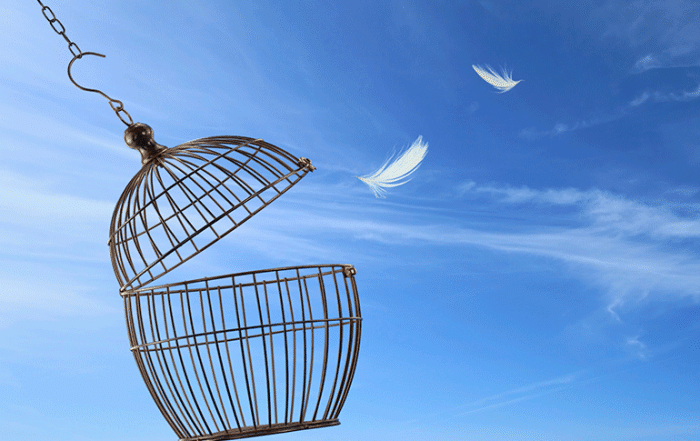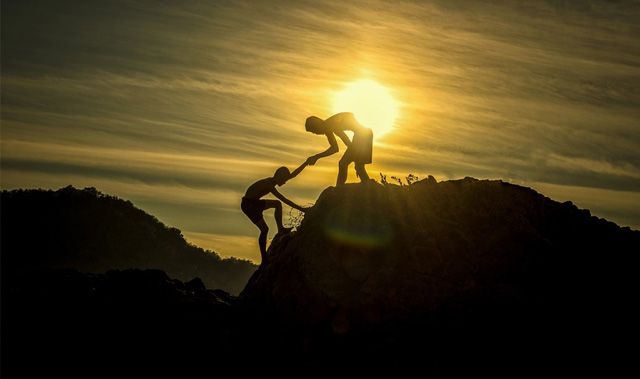Quotes
What is life for? This is the central and vital question, the question no one can suppress of muffle, the question no one dares consider foolish.
But it is a question that is not to be asked publicly in an age deprived of sense and occupied with other problems that have more to do with “how” than “what for.” Curious about everything, open to the universe of space as well as the universe of molecules, meddlesome, punctilious, inquisitive into the least detail about every subject, our technical and scientific era remains, for all that, tragically irrelevant to this question.
The meaning of life, the purpose of life, these are issues no longer taken up except within the closed circle of philosophers infatuated by metaphysical speculations, or by those who are marginal to modernity, such as Muslims and a few other outmoded types.
https://siraj.net/ar/books/Winning-the-Modern-World-for-Islam/pages/89
Self-discipline consists of patience, gentleness, long-winded perseverance, and enduring hardships. Such are “a people whom God loves and they love him – humble before the believers and proud before those who deny truth.”(1) How can we achieve the necessary balance between unrestricted mercy and uncompromising resistance to all forms of falsehood?
https://siraj.net/ar/books/Back-to-Basics-The-Justice-and-Spirituality-Movement/pages/33
Beautiful comportment is to be distinguished in both substance and appearance from the deceptive, empty trappings of materialist society. It is for the fresh water drawn from the springs of the Qurʾān to flow in our discourse, undiluted by the speculative language and expressions of new-fangled ideologies and philosophies. If we are not intent upon distinguishing ourselves in this manner, we will one day find that we have dissolved in the acid test of materialism.
We can observe this dissolution among those who pontificate about changing society while raising hollow slogans in the name of Islam, even though they have in fact succumbed before taking their first step. They are defeated when they hide their Islam, when they look down upon the Sunna, or, worse yet, when they give in to a sense of shame and allow themselves to behave with hypocrisy.
https://siraj.net/ar/books/Back-to-Basics-The-Justice-and-Spirituality-Movement/pages/32
Īmān consists of conviction in the heart, testimony with the tongue, and actions of the body. Those who have īmān are only known by good deeds. God says: “Those who have faith and do righteous deeds, for them is every good and a beautiful place of return.”
Those who work for this world are among those who will be “working in exhaustion and loss, entering a blazing Fire.” Such are the hypocrites who make a show of their deeds. And those who “strive for the Hereafter as is due while they are true in faith” “will enter the Garden wherein they are provided with abundance beyond any account.” And those who strive further to attain the Pleasure of God, closeness to Him and the bliss of gazing upon His Face are the people of iḥsān. “And God loves the people of iḥsān.”
https://siraj.net/ar/books/Back-to-Basics-The-Justice-and-Spirituality-Movement/pages/31
The Believing Woman and Consumerist Society
Among the most difficult obstacles that waylay the believing women in their jihād to achieve greater īmān are consumerism and extravagance – the distinctive features of this age. Mutual rivalry between women and men, mutual boasting, and the love of display reflect an inward worship of the bounties of this world. In a society full of decadence, corruption, and falsehood, the woman inevitably prompts her husband to take bribes, incur enormous debts, or outright steal, with the result that, at the end of the day, men and women all together find themselves in a fine mess!
It is very hard to wean women and men off so rooted a habit and so widespread a disaster. It is perhaps even harder to persuade some women and men who are at the other extreme and believe that the Lord (Exalted is He) will not be content with them until they follow the Sunna to the letter: hence, no mattresses other than a straw mat that leaves marks on the skin, and no furniture other than a few leather pillows! Some of our women, in their repentance, turn to preachers who tout Islam as a dīn of nothing but prohibitions, restrictions, and hardships. They trust in such preachers and resign from the duty of ijtihād and of seeking the counsel of competent Muslim scholars. Hence, they end up putting unnecessary constraints on themselves and wear nothing but black rags and ghastly veils.
By mentioning the Prophet’s straw mat, my intention was merely to promote disinterestedness in the vanities of this world and to remind ourselves that racing after consumerist “happiness” only causes wills to regress, hearts to perish, and īmān to die out. At the same time, we should not try to impose an excessively ascetic lifestyle on the rest of society. Understanding this balance is of paramount importance for Islamic jurisprudence, since the most frequent cause of quarreling between men and women is the husband’s financial maintenance of the family’s costs of living. Hence, God’s Messenger (God bless him and grant him peace) would become angry whenever his wives asked him for expensive comforts which he would not accept in his house.
This balance is difficult to achieve for jurisprudence because the global environment is one of prolific production, selling, marketing, and advertising. And there are indeed limits beyond which the efforts of the individual woman or of the Islamic state simply cannot go.
On the other hand, poverty, an unfair distribution of wealth, and class inequality have to be dealt with. Therefore, the general jihād of politics and the private jihād of the believing women and men ought to make the connection between the unfair distribution of wealth and the consumerist habits that cause a minority to live above the umma’s means while the majority live in abject poverty. The issue is global. In the world, there is a rich North and a poor South, with each country in turn having its own internal North and South.
It is quite hard to formulate a universal principle that captures this balance. We have seen how ‹Umar wanted for the Prophet (God bless him and grant him peace) and the Muslim community the same comfort and well-being which the Persians and the Romans enjoyed. Now ‹Umar Ibn al-Khaṭṭāb was no ordinary Muslim: he had emigrated from Mecca, leaving behind all his belongings, houses, and family. The Prophet himself (God bless him and grant him peace) gave him his moral and spiritual education. He was a paragon of virtue: when he became Commander of the Believers, his only dress had thirteen patches on it. In the year of epidemic and famine, he forbade himself meat so as to not favor himself to the detriment of the Muslims. The only thing harder than grasping this balance is trying to motivate people to take the pathway of discipline and not that of indulgence. May God grant us power and might to surmount such obstacles!
Environment influences lifestyle habits even as it influences moral standards. A good environment begins with the believing women and men using moral pressure to build and perfect the rectitude demanded by Islamic Law.
Muslim Women; Journey into the Light – Volume2, P 37-39.
Two Clashes
Ever since their emergence, the Muslim mind and body have clashed with the other mind and body. That clash had ebbs and flows. Sometimes the other mind and body were in such a state of weakness and agony that you could not speak of any clash, because a living being does not clash with dead entities.
Sometimes our mind and body were in such a state of weakness and stagnation that one could not speak of any confrontation, but could only describe the situation as the Prophet (God bless him and give him peace) described it when he said: “Nations are soon going to rush toward you, as insatiable eaters rush toward a delicious meal.” Someone asked: “Will that be due to our being few on that day?” He replied (God bless him and give him peace): “No indeed, you will be numerous on that day, but you will be like the scum of the flood. God will surely remove respect for you from the breasts of your enemy and instill feebleness in your hearts.” Someone asked: “O Messenger of God! What is feebleness?” He said (God bless him and give him peace): “Love of this world and dislike of death.”27
We have become scummy in mind and body, invaded and utterly consumed by civilized and industrial nations that love this life, possess sciences and technology, hate to die and yet put people to death. As for us, we are eager to live any life, however miserable, and we hate physical death, while accepting the death of our dignity and human nature.
The constant clash had two climaxes: First, when the Muslims emerged and marched in the court of Rustam, the land of the Persians and the colonies of Byzantium, they uttered that liberating declaration for which military power opened the space of action, and the mind-liberating declaration of Truth opened the breasts of the nations. In the second climax, the clash began two centuries ago, with the conquest in which the other mind acquired superiority and brought about the dreadful current consequences. What happened to the first Muslim mind, which had a simple culture and a modest understanding of the world, when it entered the countries of others?
That is a necessary question, because the impact of Islam’s emergence and its clash with other civilizations, mentalities and philosophies are still manifest today.
We cannot know what “human” and “rights” mean for us and others, unless we make a comparison between the evolution of the Muslim mind and the other mind, leading to their current situation.
From our source and theirs, we ought to observe the most important historical phases of the two minds, until the phase wherein trends and contradictions between the two entities reached the point where coexistence was imposed willy-nilly.
The Muslim Mind on Trial , p 58-59








